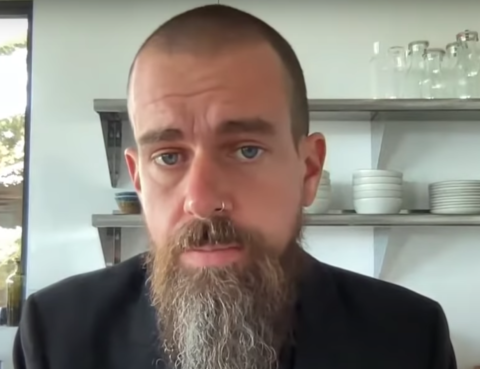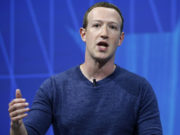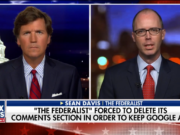On March 25, the CEOs of Facebook, Twitter, and Google were subjected to a nearly five-hour hearing before two subcommittees of the U.S. House Energy and Commerce Committee about social media’s role in extremism and misinformation. The results left much to be desired from both members of Congress and representatives of three of the dominant tech platforms. Subcommittee members attempted to pigeonhole Mark Zuckerberg, Jack Dorsey, and Sundar Pichai into answering complex questions about everything from censorship of Christianity to vaccine misinformation on their platforms with a simple yes or no. (This prompted Twitter’s Jack Dorsey to ask his followers “Yes or No” in a poll halfway through the hearing.) Removing the nuance from these delicate and impactful issues does not bode well for the future of social media and free speech online – especially when Congress gets involved.
One of the most pressed issues by Democratic members was whether the tech giants bore any responsibility for the Capitol riot on January 6, 2021. Only Dorsey admitted his platform played a role in the riot, saying Twitter was part of a “broader ecosystem” of misinformation and extremism, while Zuckerberg and Pichai refused to answer. Following the riot, Twitter banned then-President Trump, citing “the risk of further incitement of violence.” Facebook also indefinitely banned Trump, an action that was recently upheld, in part, by the company’s Oversight Board (essentially Facebook’s version of a Supreme Court).
Facebook’s court is one attempt at self-regulation (and a controversial one), meant to simultaneously quell fears of Facebook having too much concentrated power and fears about government overreach on social media. But no tech giant has found a solution yet that satisfies legislators. In the meantime, beating on the platforms has become a political hobbyhorse for both parties. Politicians are getting closer and closer to taking over the job of regulating speech on the internet themselves. On the right, witness the passage of laws to prevent the “censorship” of conservative speech online. The perspective on the other side of the aisle was summed up by Committee Chair Frank Pallone (D-NJ), who said, “The time for self-regulation is over. It is time we legislate to hold you accountable.” Not surprisingly, Zuckerberg, Dorsey, and Pichai were cautious about Congress creating new laws to regulate speech – and alleged mis- and disinformation – on their platforms.
While members of Congress on the Subcommittee were hoping to receive an affirmative reaction to their proposed regulations, Jack Dorsey was practically begging the Committee to ask him about Bluesky, his idea to create an “open and decentralized standard for social media” – essentially a plan to remove power over content moderation from government authorities or tech companies. Bluesky, currently in the planning stages, is Dorsey’s long-term vision to create a network modeled after email, which places the power of interaction and, importantly, moderation in the user’s hands. Bluesky would enable users to “join different networks but still communicate with each other no matter which one they’re using.” Users could build their own social media server, similar to how individuals today can build their own email server. Because users are ultimately in control of who they see and how they engage online, content moderation would be their responsibility, not a tech platform’s privilege. In return, tech giants, including Twitter, would lose the ability to choose content for its users.
One aim of Bluesky is to lessen the strength of algorithms in social media and instead put power back in the hands of the individual. Algorithms are regularly criticized for influencing how users see the world. In previous election cycles, algorithms have been accused of censoring political speech. According to Dorsey, Bluesky users will be able to “choose or build alternatives” to the algorithmic structure, of which Dorsey’s Twitter would be a client.
Dorsey is offering a Big Tech solution to a seemingly Big Tech problem, which may make many social media users feel uneasy. Many Americans are dissatisfied with the dominant online platforms – but should the solution really come from Big Tech or Congress? When asked at the hearing whether his platform should be in charge of users’ speech, Dorsey said, “I don’t think we should be the arbiters of truth and I don’t think the government should be either.” His remark highlights the fundamental problem with regulating social media that Congress has chosen to ignore.
Twitter has faced its fair share of criticism for blocking political speech on its platform: a quick Google search showcases the New York Post fiasco, the highly-publicized banning of political ads, and, of course, the blocking of Trump. Can Twitter be trusted to pilot a server hellbent to serve free expression online? Only time will tell and we may be running out of it.
By best estimates, Bluesky will take half a decade to build. Given the proceedings at this hearing, members of Congress seem more gung-ho to pass legislation that excites their base than to explore collaborative projects with social media platforms and solutions to perceived online ills. It’s unlikely that Congress will be willing to wait years to see the results of Bluesky. However, buying more time may be in the people’s – and the First Amendment’s – best interest.














